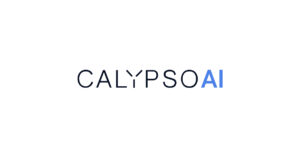68% of US Physicians Believe Generative AI is Beneficial in Healthcare: Survey : Health : Tech Times

A recent survey conducted by Wolters Kluwer Health unveils insights into U.S. physicians’ attitudes towards the integration of generative AI (GenAI) in healthcare.
According to the findings, 40% of physicians are ready to utilize GenAI in patient interactions at the point of care within this year.
But more importantly, the survey indicates a notable shift in perception, with 68% of respondents stating a change in their views over the past year, now viewing GenAI as potentially beneficial for healthcare.
Are physicians embracing generative AI now?
Despite this growing acceptance, physicians express cautiousness regarding the types of GenAI tools they are willing to adopt. Most (91%) emphasize the importance of GenAI materials being developed by medical professionals, while 89% demand transparency from vendors regarding the sourcing and creation of information.
Dr. Peter Bonis, Chief Medical Officer at Wolters Kluwer Health, highlights the significance of content source and transparency, emphasizing that physicians prioritize trustworthy applications of generative AI in clinical settings.
“Physicians are open to using generative AI in a clinical setting provided that applications are useful and trustworthy. The source of content and transparency are key considerations,” Dr. Peter Bonis said in a press release statement.
Physicians perceive GenAI as a transformative technology capable of addressing challenges such as staffing shortages and burnout in healthcare. They anticipate several advantages, including improved care team interactions with patients, time savings, and enhanced decision-making processes at the point of care.
Contrastingly, a comparison between physician and consumer perspectives reveals disparities in views regarding the integration of GenAI. While two-thirds of physicians believe patients would trust GenAI results for clinical decisions, only slightly over half of patients share this sentiment.
Moreover, physicians underestimate patient concerns regarding GenAI usage in diagnoses, highlighting a significant perception gap between healthcare providers and consumers.
Read Also: AI-Powered Women’s Health App Quickens Endometriosis Diagnoses
4 Out of 5 Physicians Express Confidence in GenAI
Many physicians, accounting for four out of five, express confidence that GenAI will enhance interactions between care teams and patients.
Additionally, a majority of physicians believe that GenAI has the potential to yield time savings of 20% or more. Furthermore, over two-thirds (68%) of physicians assert that GenAI can expedite the process of searching medical literature, facilitating efficient access to relevant information.
Similarly, three in five physicians (59%) indicate that GenAI can streamline tasks by summarizing patient data extracted from electronic health records (EHR).
Conversely, a small minority, comprising only 3% of physicians, believe that GenAI will not contribute to improving interactions with patients.
The survey underscores the evolving landscape surrounding the adoption of GenAI, with many physicians indicating a lack of clear guidelines or policies within their organizations.
Despite this, physicians emphasize the importance of transparency and content sourcing when selecting GenAI tools. Most prioritize tools trained on content developed by medical professionals, while transparency from vendors regarding data sourcing and technology origins is deemed essential.
The survey involved 100 respondents who are U.S. physicians working in large hospitals and/or health systems, actively seeing patients, and utilizing clinical decision-support tools.
Related Article: Healthcare Professionals Convene on Who to Blame for AI-Assisted Doctor Malpractices
ⓒ 2024 TECHTIMES.com All rights reserved. Do not reproduce without permission.



